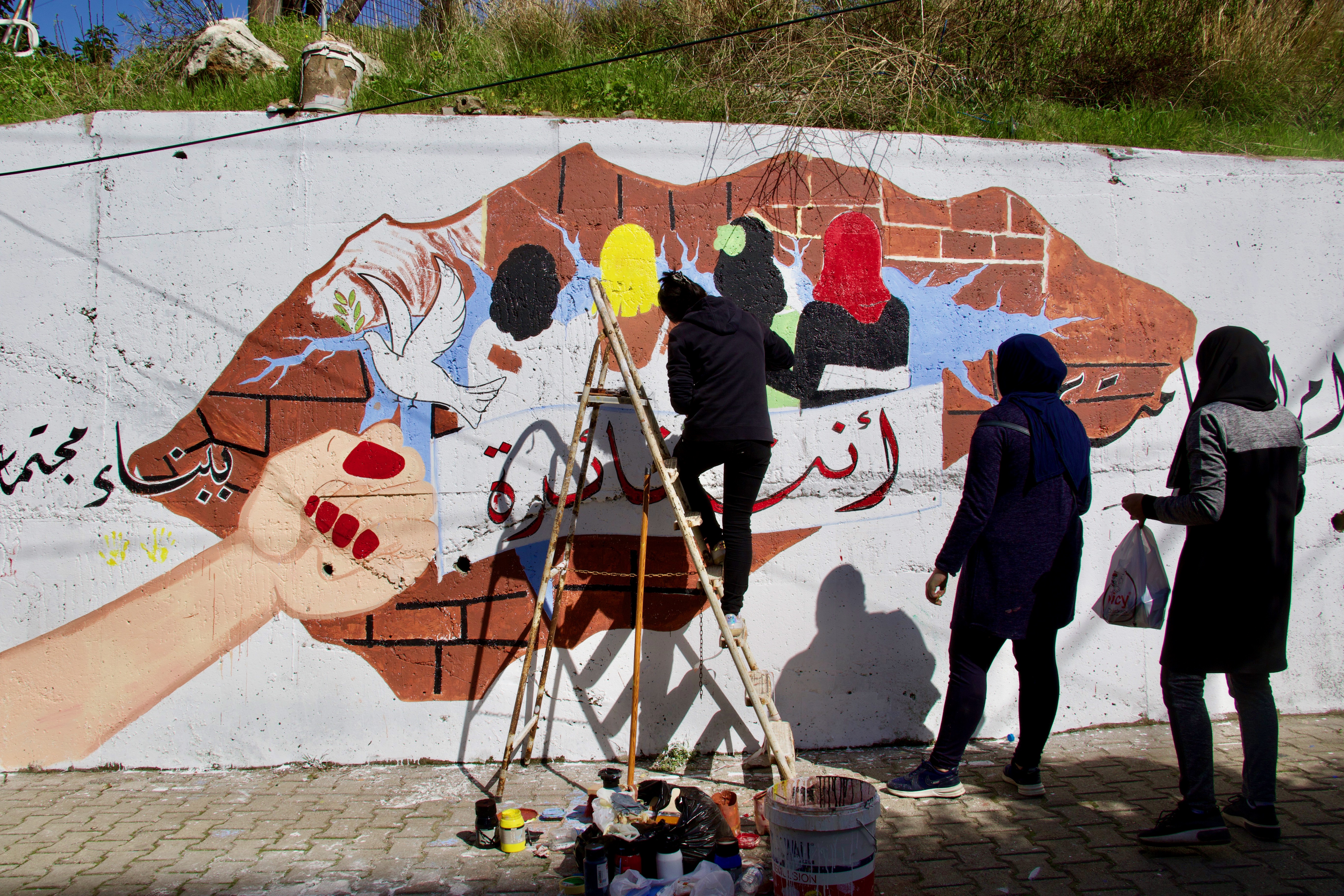The women creating a more peaceful future for generations to come
Date:
Nazha*, 33 has faced the hardship of the war in Syria and conflict in Lebanon, but now she is using her journey to promote non-violence and mediation through peaceful dialogues in her community with women from different communities and generations. She is one of 85 women from Tripoli (North) and Baalbek (Bekaa) participating in women-led community dialogues under the ‘Creating Space for Women Peacebuilders’ project led by International Alert and UN Women and generously supported by the Government of the United Kingdom.

Nazha fled Syria ten years ago with her family, hoping to escape from the war engulfing her country and find sanctuary in Lebanon. Only to find herself caught up in different sectarian conflicts in the city of Tripoli, north of Lebanon. “We left Syria because we couldn’t mentally cope with the unstable situation there, after having lost many of our family members, just to find ourselves frightened and insecure here in Bab AL-Tebbeneh in Tripoli each time a fight takes place. Sometimes there are daily confrontations in the area; we are unable to sleep and my kids get terrified.” Nazha recalled.
Nazha is one of 85 women enrolled in the 10-month ‘Creating Spaces for Women Peacebuilders’ community dialogue project led by International Alert and UN Women. The project aims to build - through coaching, dialogue, and mediation - bridges between neighborhoods and communities divided by decades of sectarian conflict and brings together in dialogue women across generational divides.
Over eight sessions, the women discussed and trained on conflict resolution, communication skills, mediation, gender roles, and women’s role in peace and security as well as skills on how to design a campaign, how to do implement initiatives, induction on monitoring and evaluation and how to monitor conflict dynamics in the Tripoli context using monitoring tools.
The sessions were intended to gather women from different nationalities, professions, generations, and communities that have experienced war and conflict, in order to support their role as women peacebuilders in their community.
“Thanks to the women-led dialogue sessions I started feeling a lot better. Through the supportive environment, I was able to have a bigger sense of belonging to the group. Together we all got past the initial fear of ‘the other’ and became comfortable with one another, forming one big loving family; regardless of our backgrounds and views. Ultimately we all had the same goal, which is to live together in coexistence and peace,” Nazha explained.
“What started as a conversation between a group of women has become an everlasting connection. We all expressed and communicated our concerns, discussed our different individual and collective memories which broke down the barriers of fear, helped us put the past behind us and move forward. Our families, neighbors and community members also became friends. If problems would arise again between Bab al Tebbeneh and Jabal Mohsen, I don’t fear that things will escalate into violence because of the culture of non-violence that has spread amongst us and our ability to mitigate conflict.
The dialogue sessions made us expand our views and accept the differences between us. We reached a common statement “violence was never a solution for any problem”; as we were all coming from areas of conflict and we all have our painful stories and experiences.
Being engaged in the workshops and dialogues boosted my confidence and helped all of us understand our worth and the great value and impact that we, as women, have within our families and communities and how we can bring peace to our communities. Even at home with my own family. I have changed my outlook and how I interact with them on a daily basis, I became more understanding to their needs and able to communicate better.
This goes beyond my family. In my neighborhood, I play now the role of the mediator and recently when a conflict happened between the neighbors on the use of a common rooftop, I found a solution after listening to each person’s point of view and desires and applied a collaborative approach. It needs understanding and attention.
Now, if any problem happens in the community, I feel knowledgeable and empowered to mitigate conflict and come to a peaceful conclusion. There is always a way to work things out – all it takes is the time and peaceful dialogue to understand the other side of the story and not let anger or frustration rule our interactions,” affirmed Nazha.
“We are the children of today, a generation with new ideas, solutions and ways of thinking – we have a key role in creating a peace today, for a peaceful future for all”.
*The name has been changed to protect the participant's identity.